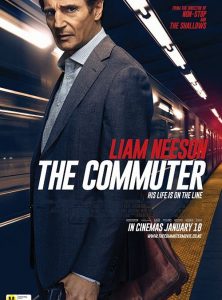Acerbic and hysterical, Sorry to Bother You, directed and written by Boots Riley, is a scathing indictment of capitalism. Imagining an alternative vision of contemporary Oakland, California, Riley critiques the ways in which capitalism’s lust for profit is exploitative and dehumanising. Through its strange familiarity – and its sharp screenplay, lively editing, and perfectly pitched performances – the film is visually distinctive, comically inventive and caustically incisive. It is satirical science fiction at its most stylish, searing and sobering.
Cassius “Cash” Green (Lakeith Stanfield) is struggling to make ends meet. Currently living in his uncle’s garage, he manages to find a job as a telemarketer selling encyclopedias at a company called Regalview. His free-spirited and radical artist girlfriend Detroit (Tessa Thompson) soon joins him. Employees are instructed to S.T.T.S. – ‘Stick To The Script’ – and make as many phone calls as possible. Those who are particularly successful become ‘Power Callers’. After an unsuccessful start, Cassius is told that he can only become a Power Caller if he puts on his ‘White Voice’ (voiced by David Cross) to talk to customers. He is so successful at putting on his ‘White Voice’ that he is soon promoted – as fellow co-worker Squeeze (Steven Yeun) takes the initiative to lead an increasingly incensed union to push for higher wages. And all the while, the spectre of an organization called WorryFree, founded by Steve Life (Armie Hammer), lingers in the background – an organization which offers free food and housing for its members, all in exchange for a lifelong labour contract.
What is immediately distinctive about the film is its style and its screenplay. Grounded by a colourful sense of place, Oakland is vividly rendered as a counter-cultural capital under attack from the homogenising imperatives of global capital. Scenes of street art are depicted through kinetic editing and set to a dynamic score, capturing the particular urban rhythms of the setting and its characters. This style is also found in the confident and risky screenplay, and the performances – especially from Stanfield and Thompson – are critical for ensuring that its political overtones are conveyed with deft reflexive comical heft.
The film’s critical tone becomes increasingly provocative and incendiary as the plot becomes more and more outlandish. Its portrayal of rampant capitalism, inflected through both race and class, is both hilarious and disturbing. What starts as a relatively straightforward critique of labour exploitation morphs into something entirely more outrageous through a bizarre, jarring plot twist, and it is in this final stretch that the film appears to lose some measure of control. But if, as a Regalview manager muses early on in the film, ‘Capital is changing. I don’t want to scare you – it’s a new world’, then Riley’s vision of that new world is one which revels and indulges in exposing its immoral logic and ruthless excess. Its descent into the riotous uncanny is perhaps not only artistically warranted but politically necessary – a jolt to remind us of capitalism’s alienating and exploitative extremes, and the sorts of futures it is ushering in with seeming inevitability.
Sorry to Bother You is in cinemas from 29th November through Universal Pictures.





